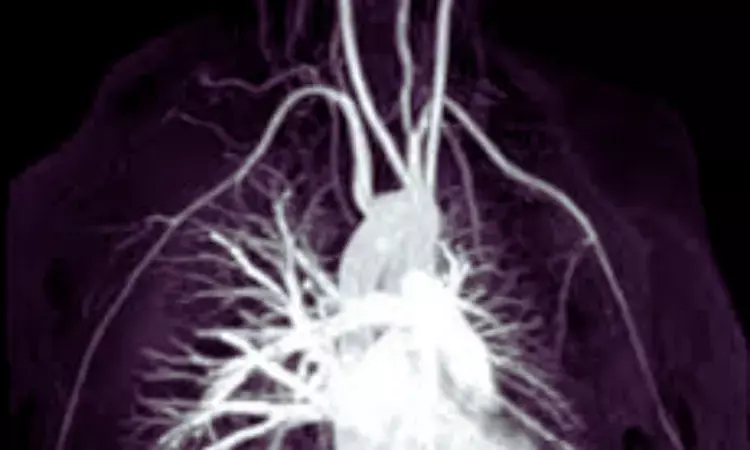- Home
- Medical news & Guidelines
- Anesthesiology
- Cardiology and CTVS
- Critical Care
- Dentistry
- Dermatology
- Diabetes and Endocrinology
- ENT
- Gastroenterology
- Medicine
- Nephrology
- Neurology
- Obstretics-Gynaecology
- Oncology
- Ophthalmology
- Orthopaedics
- Pediatrics-Neonatology
- Psychiatry
- Pulmonology
- Radiology
- Surgery
- Urology
- Laboratory Medicine
- Diet
- Nursing
- Paramedical
- Physiotherapy
- Health news
- Fact Check
- Bone Health Fact Check
- Brain Health Fact Check
- Cancer Related Fact Check
- Child Care Fact Check
- Dental and oral health fact check
- Diabetes and metabolic health fact check
- Diet and Nutrition Fact Check
- Eye and ENT Care Fact Check
- Fitness fact check
- Gut health fact check
- Heart health fact check
- Kidney health fact check
- Medical education fact check
- Men's health fact check
- Respiratory fact check
- Skin and hair care fact check
- Vaccine and Immunization fact check
- Women's health fact check
- AYUSH
- State News
- Andaman and Nicobar Islands
- Andhra Pradesh
- Arunachal Pradesh
- Assam
- Bihar
- Chandigarh
- Chattisgarh
- Dadra and Nagar Haveli
- Daman and Diu
- Delhi
- Goa
- Gujarat
- Haryana
- Himachal Pradesh
- Jammu & Kashmir
- Jharkhand
- Karnataka
- Kerala
- Ladakh
- Lakshadweep
- Madhya Pradesh
- Maharashtra
- Manipur
- Meghalaya
- Mizoram
- Nagaland
- Odisha
- Puducherry
- Punjab
- Rajasthan
- Sikkim
- Tamil Nadu
- Telangana
- Tripura
- Uttar Pradesh
- Uttrakhand
- West Bengal
- Medical Education
- Industry
Ferumoxytol-Enhanced MR Angiography: Safe and Effective Imaging Option for CKD Patients, Pilot Study Finds

USA: Researchers have reported that ferumoxytol-enhanced MR angiography (MRA) is safe for patients with chronic kidney disease (CKD).
The findings, led by Dr. Perry Hampilos of Massachusetts General Hospital in Boston, suggest that ferumoxytol could serve as a promising alternative MRA contrast agent for CKD patients at higher risk of nephrotoxicity. The results were published on January 27 in the International Journal of Cardiovascular Imaging.
The use of conventional contrast agents in computed tomography (CT) and magnetic resonance (MR) imaging is often restricted in patients with chronic kidney disease (CKD) due to the risk of nephrotoxicity. Ferumoxytol, initially developed for iron supplementation, has emerged as a safer alternative MR contrast agent for CKD patients. Andre Luppi, Department of Radiology, Massachusetts General Hospital, Boston, MA, USA, and colleagues aimed to share our center's experience using ferumoxytol as a contrast agent in CKD patients.
For this purpose, the researchers retrospectively reviewed 24 MR imaging studies of the chest, abdomen, and pelvis on CKD patients at their center. All patients were deemed eligible for ferumoxytol administration and received a 4 mg/kg dose, with post-injection monitoring. The quality of imaging in the ascending, descending, suprarenal, and infrarenal aortic segments was evaluated by three independent observers using a qualitative scoring system (ranging from nondiagnostic to excellent vascular definition). Additionally, quantitative analyses, including signal-to-noise ratio (SNR), contrast-to-noise ratio (CNR), and heterogeneity index, were performed.
The following were the key findings of the study:
- There were no adverse reactions to ferumoxytol.
- Of the 72 vascular segments evaluated, 90.8% of the images were rated as having excellent vascular definition, and 9.2% were rated as having good vascular definition.
- Inter-observer agreement was substantial (k = 0.647), with no statistically significant differences in ratings between observers.
The investigators highlighted that their review of 24 cases demonstrated primarily excellent imaging quality, with adequate signal-to-noise ratio and contrast-to-noise ratio, and a low heterogeneity index.
Despite these promising results, the team observed that ferumoxytol remains underused for this indication, potentially due to factors such as cost, physician resistance to off-label use, and safety concerns stemming from a prior black box warning by the U.S. Food and Drug Administration (FDA) about severe reactions. However, the study's findings contribute to the growing body of literature supporting strong efficacy and safety profile of ferumoxytol when used at doses well below the iron repletion doses that triggered the FDA warning.
The researchers concluded that institutions should establish imaging protocols and provide clear information to referring clinicians to promote the use of ferumoxytol for contrast-enhanced imaging of vascular anatomy and pathology in selected patient populations.
Reference:
Hampilos, P.J., Luppi, A., Ghoshhajra, B. et al. Selective use of ferumoxytol-enhanced magnetic resonance angiography in patients with renal insufficiency: insights from a pilot study. Int J Cardiovasc Imaging (2025). https://doi.org/10.1007/s10554-025-03337-6
Dr Kamal Kant Kohli-MBBS, DTCD- a chest specialist with more than 30 years of practice and a flair for writing clinical articles, Dr Kamal Kant Kohli joined Medical Dialogues as a Chief Editor of Medical News. Besides writing articles, as an editor, he proofreads and verifies all the medical content published on Medical Dialogues including those coming from journals, studies,medical conferences,guidelines etc. Email: drkohli@medicaldialogues.in. Contact no. 011-43720751


